이 기사는 해외 석학 기고글 플랫폼 '헤럴드 인사이트 컬렉션'에 게재된 기사입니다.
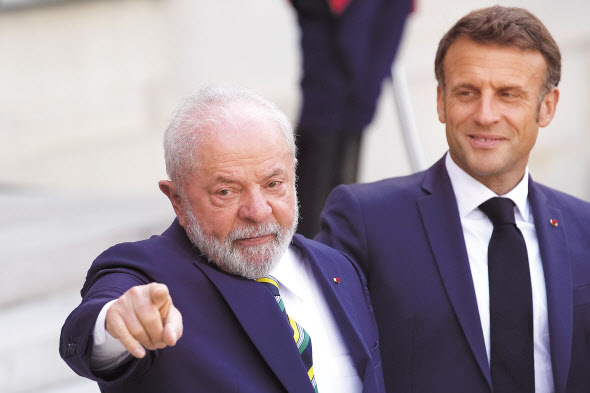 |
| 에마뉘엘 마크롱(오른쪽) 프랑스 대통령이 지난달 23일 프랑스 파리에서 열린 ‘새로운 글로벌 금융협약 정상회의’에 참석해 엘리제궁을 방문한 루이스 이나시우 룰라 다 실바 브라질 대통령이 기자들의 질문을 받고 있는 모습을 보며 미소 짓고 있다. [AP] |
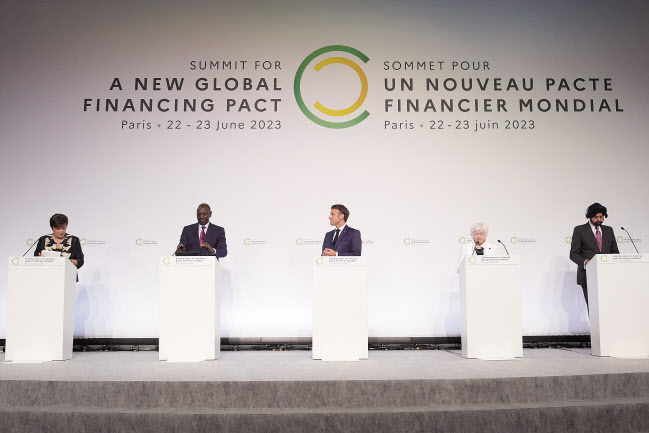 |
| 빈곤과 기후변화 대응을 위한 ‘새로운 글로벌 금융협약 정상회의’ 가 지난달 22~23일 프랑스 파리에서 열린 가운데 크리스탈리나 게오르기에바(왼쪽부터) 국제통화기금(IMF) 총재, 윌리엄 루토 케냐 대통령, 에마뉘엘 마크롱 프랑스 대통령, 재닛 옐런 미국 재무장관, 아제이 방가 세계은행(WB) 총재 등이 기자회견을 하고 있다. [로이터] |
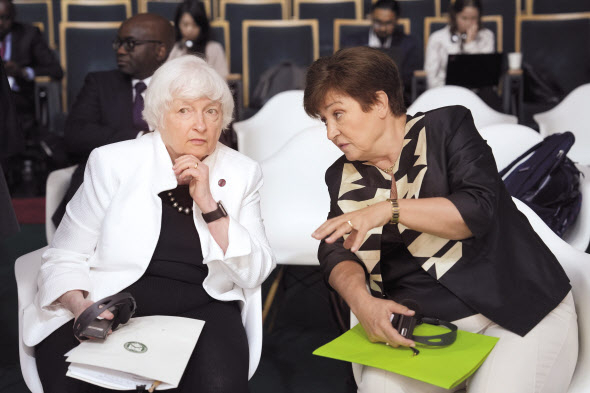 |
| 재닛 옐런(왼쪽) 미국 재무장관과 크리스탈리나 게오르기에바 국제통화기금(IMF) 총재가 지난달 23일 프랑스 파리에서 열린 ‘새로운 글로벌 금융협약 정상회의’ 폐막 세션에서 의견을 교환하고 있다. [EPA] |
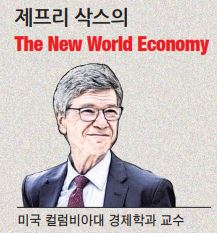
미아 모틀리 바베이도스 총리와 에마뉘엘 마크롱 프랑스 대통령이 지난 6월 22~23일 빈곤 및 인간이 야기한 기후 변화에 맞서 싸울 자금을 조달하기 위한 ‘글로벌 협약’을 체결하기 위해 세계 지도자들을 프랑스 파리로 초대했다. 이 목표에 대한 많은 찬사에도 실제 제안된 금액은 얼마 되지 않았다. 빈곤 및 기후 변화와의 싸움에 필요한 자금 조달이 전 세계적으로 계속 실패하는 건 상당 부분 미국 정치의 실패 탓이다. 왜냐하면 적어도 현재는 미국이 세계 금융 시스템의 중심에 있어서다.
미국 정치를 이해하려면 대영 제국의 역사로 거슬러 올라가야 한다. 영국이 제국주의 강국이 되고, 또 그 후 19세기에는 세계를 주도하는 강대국이 되면서 영국의 철학은 부상하고 있는 대영 제국을 정당화하는 방향으로 바뀌었다. 영국의 철학자들은 강력한 국가(토머스 홉스의 ‘리바이어던’)를, 부의 재분배보다는 사유재산 보호(존 로크의 ‘생명, 자유, 재산’에 대한 권리)를, 정부보다 시장(애덤 스미스의 ‘보이지 않는 손’)을, 빈곤층 구제책의 무익함(토머스 맬서스의 ‘인구론’)을 주창했다.
1840년대 아일랜드 기근과 20세기 후반 인도 기근과 같은 인도주의적 위기가 대영 제국에 발생했을 때 영국은 식량 지원을 거부하고, 구할 수 있었음에도 수백만명의 국민이 굶주리게 내버려뒀다. 이 무대응은 ‘빈곤은 필연적인 것이어서 빈곤층을 돕는 건 도덕적으로 불필요하고 실질적으로 무익하다’고 보는 자유방임주의 철학과 일맥상통한다.
간단히 말해 영국의 엘리트들은 제국의 가난한 국민을(또는 가난한 영국 사람까지도) 돕는 것에 관심이 없었다. 이들이 원하는 것은 그들의 해외 투자와 수익을 보호하기 위한 낮은 세금과 강력한 해군이었다.
미국은 식민지 시절 본국이었던 영국 슬하에서 국정운영을 배웠다. 미국 건국의 아버지들은 군주 대신 대통령이라는 역할을 새로 만들어내긴 했지만 영국의 원칙에 따라 새 국가의 정치제도와 외교 정책을 수립했다. 그 후 제2차 세계대전을 겪으며 세계 패권이 영국에서 미국으로 넘어왔다.
미국 헌법의 주요 저자인 제임스 매디슨은 로크의 열렬한 지지자였다. 매디슨은 노예를 소유한 부유한 집안에서 태어났고 대중으로부터 재산을 보호하는 데에 관심이 많았다. 매디슨은 대중이 정치에 직접 참여하는 ‘직접 민주주의’를 두려워하며, 사람들이 (원칙상으로는) 그들의 이익을 대변할 대표를 선출하는 ‘대의정치’를 지지했다. ‘지방정부는 주민과 너무 가까워 부의 재분배를 선호할 가능성이 크다’는 이유로 매디슨은 지방정부를 두려워했고, 따라서 멀리 떨어진 수도에 존재하는 연방정부를 옹호했다.
매디슨의 전략은 통했다. 미국 연방정부는 대체로 여론으로부터 단절돼 있다. 대중 대다수는 전쟁에 반대하고, 모두를 위한 저렴한 의료 서비스를 지지하며, 부자 증세를 주장한다. 그러나 미국 의회는 일상적으로 전쟁을 수행하고 고가의 민간 의료 서비스 및 부자 감세를 내놓는다.
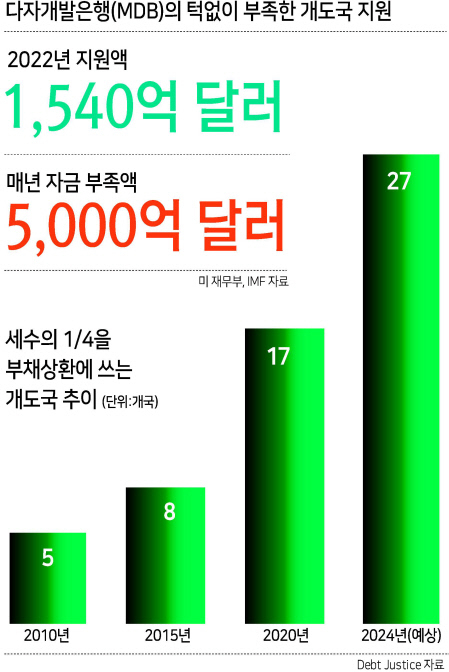
미국은 스스로를 민주주의국가라고 칭하지만 사실상 금권정치국가(plutocracy)다. 영국 시사주간지 이코노미스트의 부설 조사기관인 EIU는 미국을 ‘결함 있는 민주주의’로 분류한다. 부자와 기업의 압력단체가 선거 캠페인에 자금을 지원하고 그 대가로 정부는 부자에 대한 낮은 세율, 오염의 자유 및 전쟁을 제공한다. 민간 의료기업들이 의료산업을 지배하며, 월가는 금융 시스템을, 빅오일(Big Oil·전 세계 상위 6~7개 석유회사)은 에너지 시스템을, 군산(軍産) 로비단체는 외교 정책을 좌지우지한다.
그리고 이것은 우리를 글로벌 기후위기로 이끈다. 세계에서 가장 힘이 센 국가의 국내 에너지 정책이 여전히 빅오일의 손에 있고, 이 국가에는 전쟁을 통한 패권 유지를 목표로 하는 외교 정책과 빈곤 퇴치이든, 기후 변화 대응이든 그 어떤 대중의 요구로부터 부자들을 보호하기 위해 고안된 의회가 있다.
미국 대표로 파리 정상회의에 참석한 존 케리 대통령 기후특사와 재닛 옐런 재무장관은 개인적으로 보면 빈곤 및 기후 변화와의 싸움에 오랫동안 깊이 헌신해온, 훌륭한 윤리관의 사람들이지만 이들이 실제로 미국 정책을 수립할 수 있는 것은 아니다. 의회와 미국의 금권정치가 가로막고 있기 때문이다.
파리 정상회의에 참석한 지도자들은 세계은행, 아프리카개발은행, 아시아개발은행 등 ‘다자 간 개발은행(MDB)’의 공적 개발금융을 긴급히 크게 확대해야 할 필요가 있다고 인정했다. 그러나 필요한 금액만큼 대출을 확대하기 위해선 미국, 유럽 및 기타 주요 경제국이 MDB에 더 많은 납입 자본금을 넣어야 한다. 그러나 미 의회는 MDB에 더 많은 자본을 투자하는 것을 반대하고 있으며, 이러한 미국의 반대가 (지금까지) 전 세계적인 조치가 취해지는 것을 가로막고 있다.
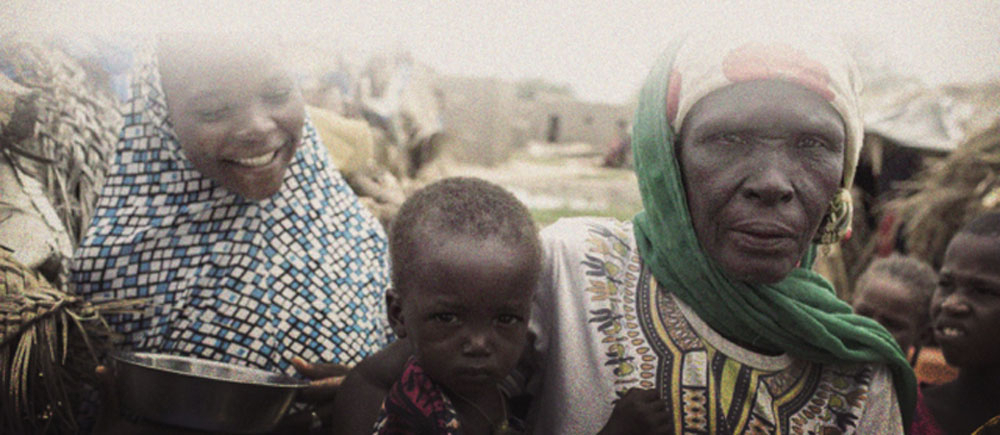 |
| 아프리카 나이지리아 북부, 남수단 등에서 약 3000만명이 끔찍한 굶주림에 직면하며, 세계는 전례 없는 기근의 위기에 처해 있다고 국제구호개발기구 옥스팜 등은 지적하고 있다. [옥스팜 홈페이지] |
미국 의회의 반대에는 세 가지 이유가 있다.
첫째, 자본을 투자하려면 미국도 약간의 돈이 필요한데 선거자금을 제공하는 부자들이 여기에 관심이 없다.
둘째, 자본이 투자되면 화석 연료에서 벗어나는 글로벌 에너지 전환이 가속화될 텐데 미국 빅오일의 로비단체들은 이 전환을 늦추고 싶어하지, 가속하기를 원하지 않는다.
셋째, 자본이 투자되면 중국도 참여하는 글로벌 기구의 정책적 영향력이 더 커질 텐데 미국의 군산복합체는 중국과 싸우고 싶어하지, 협조하기를 원하지 않는다.
그 결과, 개발도상국들은 MDB의 자본 확충을 통한 수천억달러의 추가 MDB 대출을 필요로 하지만 미국과 유럽은 그 대신 MDB에 기존의 자본으로 조금 더 대출을 해주라고 압력을 가하고 있다. MDB가 현재의 자본으로 해마다 200억달러의 추가 대출을 쥐어짜낼 수는 있겠지만 필요한 금액에 비해 너무 적은 액수다.
개발도상국들은 파리에서 분노를 가감 없이 표출했다. 루이스 이나시우 룰라 다 실바 브라질 대통령과 몇몇 아프리카 대통령은 ‘정상회의는 너무 많은데 지원되는 자금은 너무 적다’고 지적했다. 리창(李强) 중국 총리는 조용하고 정중한 연설을 통해 중국은 개발도상국과 함께 자신의 역할을 다할 것이라고 약속했다.
미국이 발을 질질 끌더라도, 나머지 국가가 앞으로 나아간다면 해결책은 결국 나올 것이다. 미국 외 국가들은 미국이 MDB 자본 확충을 막도록 허용하지 말고, 미국이 있든 없든 앞으로 나아가야 한다. 그러면 미국의 금권정치가들도 그들의 욕심과 호전성을 거부하는 세상을 직면하는 것보다 빈곤 및 기후 변화와 싸우도록 약간의 비용을 지불하는 게 더 낫다는 점을 깨달을 것이다.
제프리 삭스 미국 컬럼비아대 교수
US Politics and the Paris Finance Summit
Jeffrey Sachs
Barbados Prime Minister Mia Mottley and French President Emmanuel Macron invited world leaders to Paris on June 22-23 to reach a new “global pact” to finance the fight against poverty and human-induced climate change. All kudos for the ambition, yet few dollars were put on the table. To an important extent, the continuing global failure to finance the fight against poverty and climate change reflects the failings of US politics, since the US, at least for the moment, remains at the center of the global financial system.
To understand US politics, we should start with the history of the British empire. As Britain became an imperial power, and then the world’s leading power of the 19th century, British philosophy changed to justify Britain’s emerging empire. British philosophers championed a powerful state (Thomas Hobbes’ Leviathan), the protection of private wealth over redistribution (John Locke’s right to “life, liberty, and property”), markets over government (Adam Smith’s “Invisible Hand”), and the futility of aiding the poor (Malthus’ law of population).
When humanitarian crises arose in the British empire, such as the Irish famine in the 1840s and the famines in India later in the century, Britain rejected providing food aid and left millions of its subjects to starve, even though food supplies were available to save them. The inaction was in line with a laissez-faire philosophy that viewed poverty as inevitable and help for the poor as morally unnecessary and practically futile.
Simply put, Britain’s elites had no interest in helping the poor subjects of the empire (or indeed Britain’s poor at home). They wanted low taxes and a powerful navy to defend their overseas investments and profits.
The United States learned its statecraft at the knee of Britain, the mother country of the American colonies. America’s founding fathers molded the new country’s political institutions and foreign policies according to British principles, albeit inventing the role of president instead of monarch. The US overtook Britain in global power in the course of World War II.
The lead author of the US Constitution, James Madison, was an ardent enthusiast of Locke. He was born into slave-owning wealth and was interested in protecting wealth from the masses. Madison feared direct democracy, in which the people participate in politics directly, and championed representative government, in which the people elect representatives who supposedly represent their interests. Madison feared local government because it was too close to the people and too likely to favor wealth redistribution. Madison therefore championed a federal government in a far-off capital.
Madison’s strategy worked. The US federal government is largely insulated from public opinion. The public majority opposes wars, supports affordable healthcare for all, and champions higher taxes on the rich. The Congress routinely delivers wars, over-priced private healthcare, and tax cuts for the rich.
The US calls itself a democracy but is in fact a plutocracy. (The Economist Intelligence Unit categorizes the US a “flawed democracy”). The rich and corporate lobbies finance the political campaigns, and in return, the government delivers low taxes for the rich, freedom to pollute, and war. Private health companies dominate healthcare. Wall Street runs the financial system. Big Oil runs the energy system. And the military-industrial lobby runs the foreign policy.
This brings us to the global climate crisis. The most powerful nation in the world has a domestic energy policy still in the hands of Big Oil. It has a foreign policy that aims to preserve US hegemony through wars. And it has a Congress designed to protect the rich from the demands of the masses, whether to fight poverty or to fight climate change.
The US leaders who attended the Paris Summit, John Kerry (U.S. Special Presidential Envoy for Climate) and Janet Yellen (U.S. Treasury Secretary) are individuals of outstanding ethics and deep and long-standing commitments to fighting poverty and climate change. Yet they cannot deliver actual US policy. Congress and the US plutocracy stand in the way.
The leaders at the Paris Summit recognized the urgent need for a massive expansion of official development financing from the Multilateral Development Banks (MDBs), meaning the World Bank, the African Development Bank, the Asian Development Bank, and others. Yet to expand their lending by the amounts needed, the MDBs will require more paid-in capital from the US, Europe, and other major economies. Yet the US Congress opposes investing more capital in the MDBs, and the US opposition is (so far) blocking global action.
The Congress opposes more capital for three reasons. First, it would cost the US a little bit of money, and rich campaign funders aren’t interested. Second, it would accelerate the global transition from fossil fuels, and America’s Big Oil lobby wants to delay, not accelerate, the transition. Third, it would hand more policy influence to global institutions in which China participates, yet the military-industrial complex wants to fight China, not collaborate with it.
Thus, while developing countries need hundreds of billions of dollars in additional MDB lending each year, backed by additional MDB capital, the US and Europe are instead pressing the MDBs to lend slightly more with their existing capital. The MDBs might possibly squeeze out another $20 billion in loans each year with their current capital, a tiny fraction of what’s needed.
The exasperation of the developing world was on full display in Paris. Brazil’s President Lula da Silva and several African presidents made clear that there are too many summits and too few dollars. China’s Premier Li Qiang spoke quietly and courteously, pledging that China will do its part alongside the developing countries.
Solutions will finally come when the rest of the world moves forward despite US foot-dragging. Instead of allowing the US to block more capital for the MDBs, the rest of the world should move forward with or without the US. Even the US plutocrats will realize that it’s better to pay the modest price of fighting poverty and climate change than to face a world that rejects their greed and belligerency.








